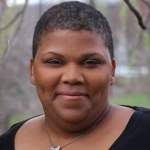Visit the Series Homepage
Vermont Reads 2011: "To Kill A Mockingbird"
 (HOST) Commentator Deb Beaupre, a 20-year teaching veteran and lifelong reader, finds many similarities to her own life in this year’s Vermont Reads book "To Kill a Mockingbird."
(HOST) Commentator Deb Beaupre, a 20-year teaching veteran and lifelong reader, finds many similarities to her own life in this year’s Vermont Reads book "To Kill a Mockingbird."
(BEAUPRE) To
Kill a Mockingbird is one of my favorite books. Strange
that a liberal Bostonian should enjoy a book about the Deep
South. Stranger still that an African
American should like a story set in the Jim Crow era. It is about hard
truths of racism, and I like it anyway.
It’s
long in the way great books are, with lots of narratives unconnected to that of
Tom Robinson and his lawyer. This story has a haunted house with a creepy
neighbor right on their street, wild misadventures with friends away from adult
eyes, and lights out conversations where kids share what’s really on their
minds.
The
parts of this novel I appreciate are those that have to do with the Finch
family, which so resembled my own.
Poor
Scout; always misunderstood, even on the first day of school when she was only
trying to be helpful, and then at home, where Calpurnia’s pestering her about
every little thing. Reading about her, I recall the many times I got in trouble
for things I didn’t know I wasn’t supposed to do. She and I both spent a lot of
time thinking, trying to understand events and people in our lives.
When
I was a little girl, my mother, like Miss Maudie, was never too busy to talk to
me, listen to me or watch me do something. Most important was that
my mother was the person who always explained what things meant to me right
then, when I asked, despite being absorbed in her own pursuits.
My
dad is a southern gentleman; unassuming, courteous, thoughtful. This last
quality made him seem remote at times which was how Atticus seemed to his kids.
Daddy, like Atticus, would sometimes take as much as a minute before responding
to a query; an eternity in my young mind. Like Jem, I doubted that he could
have ever been anything but an adult in an Oxford
cloth shirt with a handkerchief in his trouser pocket and a pipe in his mouth.
Having
Southerners for parents, I was brought up to hold teachers and pastors in high
regard, to send party guests home with a plate, and to write bread-and-butter
notes by hand. I was also taught that racism existed and was hurtful, but that
I was in the world, not necessarily of it. I was made of sterner stuff.
So,
I am conscious of and comfortable with the Mockingbird’s duality: racism;
violent, cruel and ever-present and familial love; fierce, never-ending and
unconditional. Both are real to me.
My
husband loves Mockingbird also. When we met, he told me casually that if he
ever had a girl, he wanted to call her Scout. When I gave birth to our
daughter, she had no legal name for an entire day, but was nicknamed Scout at
three minutes old.
Like
her namesake, my Scout pesters her older brothers for attention, loves an
adventure, wonders about the world around her and is apt to fight to get her
way.